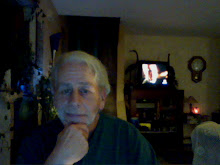The Zen of Business
by Darrell Borza
(Email: zensunni7@neo.rr.com)
| The business world is undergoing some very radical restructuring in these times, as old industries need to revamp themselves to survive in a world of evolved technologies, evolved workers and managerial perspectives.No longer can industry view the worlds people as an ocean of unlimited funds and tap them like it has the resources of the planet. People are more educated now, better equipped with information, and have evolved to see themselves as valuable assetes in their own lives. We are no longer just ‘ consumers ‘ but a force in industry to be dealt with more fairly and honestly. For centuries, people have been veiwed as mindless consumers of goods and services, lead down the primrose path of excess. American business has turned a corner, and around it they found buyers and sellers with a fully functioning brain. All of this is going to require the commanders of industry to re-evaluate their goals and obejectives for the coming decades. Business will have to set new priorities for its products and its people, and can no longer pretend that the planet will support the uncaring gluttony of its resource and its people. In the current system of things, we all need to work, to make a living and continue moving forward as individuals, families, and a race. We also need to see into our futures and work towards cleaning up the mess of our forefathers, organically and morally. I predict this will become an industry unto itself, as the damage has been great. But – greater still, are the abilities of the Human spirit and intellect, our seemingly greatest resource of Human inovation and design, the power of collective problem solving. In every country, city, and little ‘ burg ‘ of the world, people are finding new and creative ways to do things, better, faster, and with efficiencies that would make Henry Ford retire to his realization, that ” His time ” is done. There are more and more peole coming into corporate power that are based in values of integrity, compassion, and sensetivity to the reality that those working on the floor of the factories are just as Human as they are, with the same needs and desires as themselves, the same love of the Human family. The Zen of industry is knowing that only by working together as a whole can we rethink the old ways and create new ways that will move us all forward, while setting right the mistakes of the past. The ‘ common man/woman ‘ is not common any longer, and most importantly, they refuse to be common in any shape,form, or fasion. Human resources of a company are steering towards fullfilling the title, creating the means for people to become better Human Beings, resulting in a better company. Daycare at a company is a beginning, leading to a dept. of Human care. Putting Human needs and values first results in a company that acts as a family, while reaching outward to community and beyond. It is becoming blatantly clear that industry will rethink its prioroties as global changes force its hand, and their are Human Beings ready to accept the challenges of the future . The Zen of new industry starts with the realization that business is not who we are, it is what we do,to fund and support who we are, and we are moving rapidly towards an echelon of bussiness people that are reprioritizing the antiquated perspective of industry’s past. Although we are pounded daily and hourly by a negative oriented media, forever telling us of the worlds woes, there is a majority of the population working daily to create a positive exsistance in life, and across this planet, changing life for the better and creating industries that aid in the advancement of us all. The greed and gluttony of the past is being called to light in our time, but it does not shine brighter than the advances of the Human heart and soul of its people. This is the true Zen of industry, being compassionetly industrious at all levels of our lives, from the kitchens to the board rooms. |
(To contact this author, Email: zensunni7@neo.rr.com)
[All work by author is copyright protected. If you would like to use this article, please contact the author for permission.]












